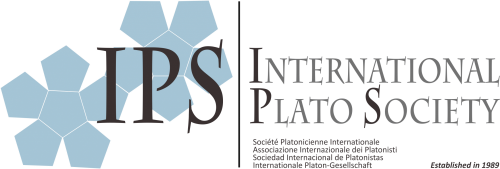Second ‘Socratica’ Conference in Naples
On December, 11-13 2008 an international conference entitled Socratica 2008. Seconde giornate di studio sulla letteratura socratica antica was held in Naples (Italy). The symposium was the follow- up of the Socratica meeting held in 2005 in Senigallia (the proceedings of which appeared in 2008). Another one is scheduled for 2011. The scientific aim of these conferences is to provide a broad approach to the context of Plato’s work: Socrates, the Socratics as a group, Xenophon, and the other major Socratics.
The event was sponsored by the Istituto Italiano per gli Studi Filosofici, the Universities of Naples “Federico II” and “Orientale”, the University of Salerno, and the International Plato Society. It was held as well under the auspices of the “Fondazione Alario per Elea-Velia”. The coordinators were Livio Rossetti (Perugia), Franco Ferrari (Salerno), Giovanni Casertano, Lidia Palumbo, and Alessandro Stavru (Naples).
The symposium was attended by about 50 people. Thirteeen papers were presented in the following sequence:
- Aniello Montano (University of Salerno), ‘Ricordo di Mario Montuori’ (Remembering Mario Montuori).
- Michael Erler (University Wu?rzburg), ‘La parrhesia socratica e il Simposio. Un elemento del confronto pubblico nella discussione filosofica’ (Socratic Parrhesia and the Symposium. An element of the Public Debate in the Philosophical Discussion).
- Noburu Notomi (Keio University Tokyo), ‘Socrates Versus Sophists: Plato’s Invention?’ Lidia Palumbo (University of Naples “Federico II”), ‘Socrate, la mimesis e la conoscenza di se?’ (Socrates, Mimesis and Knowledge of the Self).
- Michel Narcy (CNRS Paris), ‘Socrate ed Euripide in Diogene Laerzio’ (Socrates and Euripides in Diogenes Laertius).
- Gennaro Carillo (University of Naples “Suor Orsola Benincasa”), ‘Di Socrate e altri sofisti. Una nota su Aristofane’ (On Socrates and Other Sophists. A Note on Aristophanes).
- Walter Kohan (University of Rio de Janeiro), ‘Socrate, enseigner et apprendre: ce paradoxe’ (Socrates: the Paradox of Teaching and Learning).
- Graziano Ranocchia (University of Wu?rzburg), ‘Il ritratto di Socrate nel De superbia di Filodemo (PHerc. 1008, coll. 21-23)’ (The Picture of Socrates in Philodemus’ De superbia [PHerc. 1008, coll. 21-23]).
- Domingo Pla?cido (Complutense University Madrid), ‘Esquines de Esfeto: las contradicciones del Socratismo’ (Aeschines of Sphettus and the Contradictions of Socratism).
- Aldo Brancacci (University of Rome “Tor Vergata”), ‘Introduzione all’etica di Antistene’ (Introduction to the Ethics of Antisthenes).
- Stefan Schorn (University of Wu?rzburg, and now Katholieke Universiteit Leuven), ‘Philosophenko?nige und mythische Exempel: Ethik und Erziehung bei Antisthenes’ (Philosopher Kings and Mythical Exempla: Ethics and Education in Antisthenes). Alessandro Stavru (University of Naples “L’Orientale”), ‘Essere e apparire in Xen. Mem. III 10.1-8’ (Being and Appearing in Xenophon, Memorabilia III 10.1-8).
- Donald Morrison (Rice University Houston), ‘Xenophon’s Socrates on Wisdom and the Virtues’
The papers were held in groups of two or three in a row per session, dwelling mostly on similar topics. The first day was devoted to Plato’s Socrateses (Erler, Notomi, Palumbo, Kohan), the morning of the second to the Socrates of comedy (Carillo) and tragedy (Narcy) as well as to the testimony of Philodemus of Gadara (Ranocchia). On the afternoon of the second day Aeschines (Pla?cido) and Antisthenes (Brancacci, Schorn) were tackled. On the third day it was Xenophon’s turn (Stavru, Morrison).
As the papers were of great interest, all of them gave birth to very instructive discussions.
During the meeting the “Officina dei Papiri” was visited, providing insight into a major source for the late reception of Socrates, as well as for Hellenistic thought as a whole. Some famous portraits of Socrates at the “Museo Archeologico Nazionale” were seen as well, thus shading light on the way Socrates was depicted in different moments of late antiquity.
(For more details go to www.socratica.eu).
Alessandro Stavru
University of Naples “L’Orientale”, Italy a.stavru@virgilio.it
